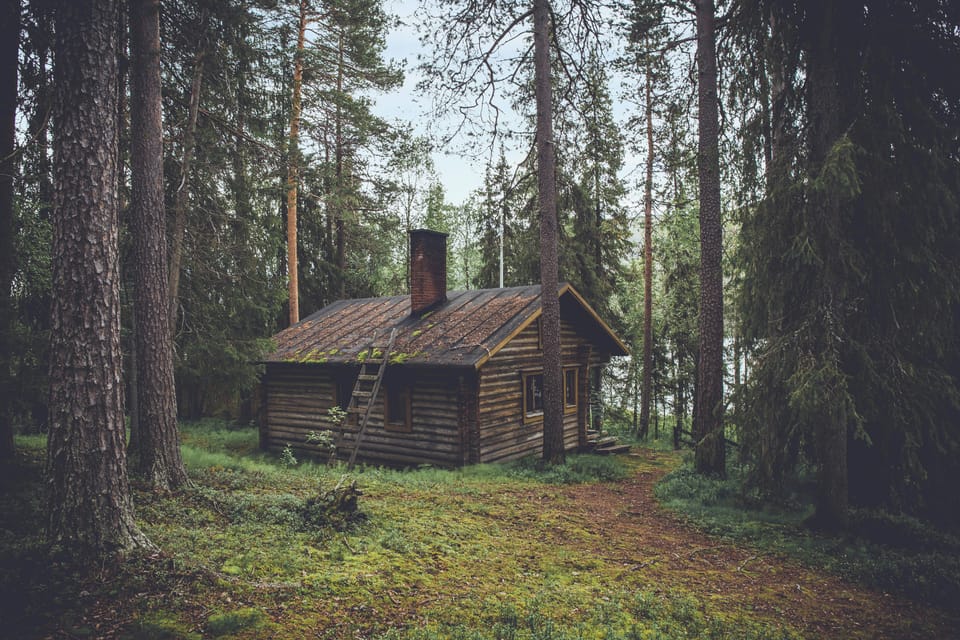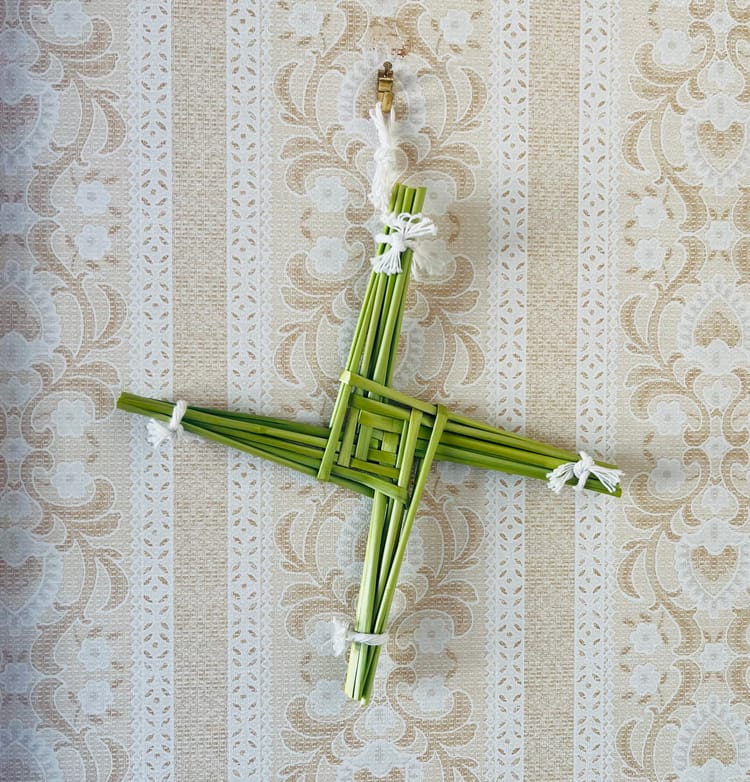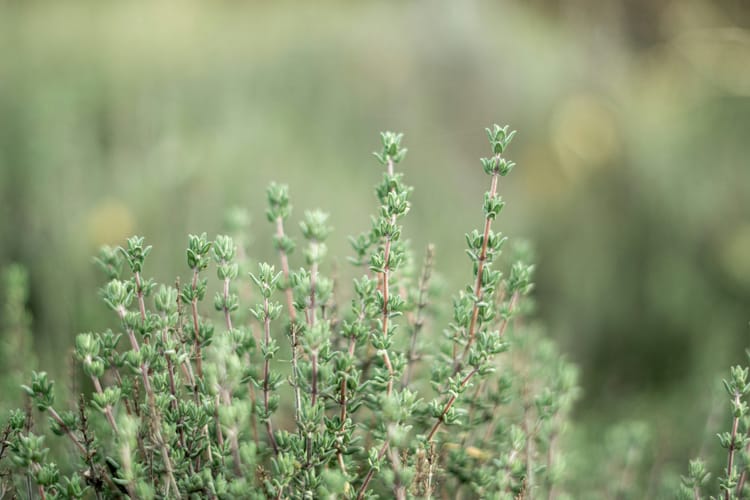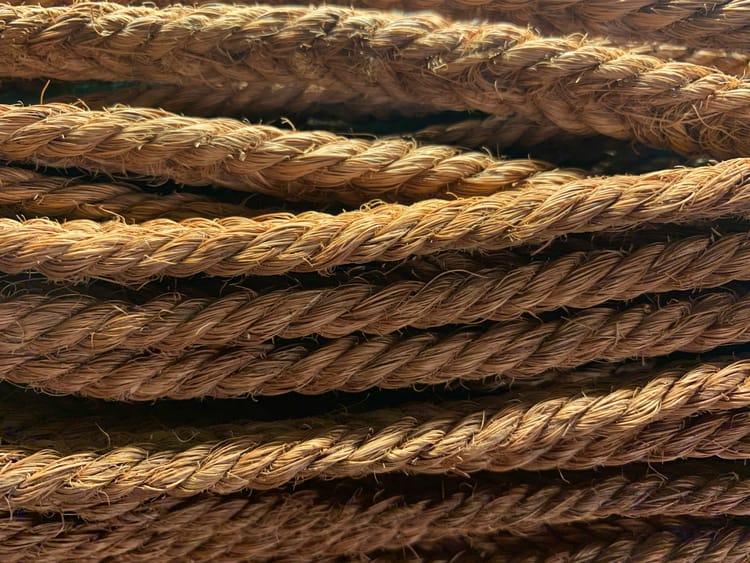First Quarter: A short(?) manifesto on survivalism

Hello. It's Friday, and I'm expecting company so I will keep this brief — at least by my standards. However, even as I call this post a manifesto, I would also call it exploratory, the foundation of something else that will coalesce in later months or years. It is a manifesto only because it expresses principles and intentions. Not for my whole life or for anyone else's, but for engaging with a specific element of my life, my rites, my priorities.
This element is survivalism, although I choose to use that term with great care. Along with "(doomsday) prepper," on this continent the mere mention of survivalism tends to conjure up images of right-wing and/or libertarian white men who hoard guns, nonperishables, tacticool gadgets, guns, bigoted leaflets, generator fuel, guns, guns, and again guns; these men are worried about real natural disasters and government encroachment on their civil rights, but they're also delusionally fixated on "the Jews," acronyms like JFK/NWO/UFO, and possibly even zombies; they expect one day the proverbial shit will hit the proverbial fan, the helter will skelter, etc., and they'll need to fend for themselves in the woods or mountains or desert with a bunker housing all their special supplies and their one or more women who only exist to cook, clean, and produce absolute piles of babies; nowadays they've possibly voted for Trump and even if they don't vote there's at least a 50% chance they've gone full Qanon. And frankly, survivalist consumer culture as we know it does predominantly look like this because it emerged roundabout the 1970s and 80s in (mostly) the United States as a sociological offshoot of the Cold War and the early stages of the patriarchal crisis[1] whose brainchildren now violently plague us. Of course, it isn't a uniquely modern US phenomenon, and the roots go much deeper into Christian eschatology, the Protestant work ethic, and colonial frontier logics.
But despite my caution (and sometimes revulsion) in this subject matter, I am not the only leftist I know with a prepper mindset. Far from it. I have several friends and parasocial connections who are all further left than just earnestly describing themselves as Democrats or liberals, and who routinely theorize, gather, learn, plan, practice and advocate preparedness for various ecological and sociopolitical crises, on a scale from temporary disruption to outright apocalypse. I'm also aware of figures like Margaret Killjoy, and of mutual aid groups, solidarity networks, and other leftist orgs whose function is to offer resources to their communities in the event of any number of disastrous situations, including training in critical skills (even including firearms operation, whether for hunting or self-defense). The right does not have to dominate this field unless we let it – and we mustn't.
I don't know if I would go so far as to label myself concretely as a survivalist so much as a survivalist-in-training, but as a left-wing survivalist ethos has formed a major strand of my approach to apocalyptic witchcraft, I intend to deepen that training both for and during the time-to-come. The following are the principles I want to keep bearing in mind as I look ahead. And in outlining these principles, I also must confront some of my own psychological challenges. In light of those, I have written this for the First Quarter, not the Last — because although I (we) must soberly assess that time-to-come in planning ahead, this work ties in most directly to my interests in homesteading and sacred domesticity. That is, to sources of space-making, and community-building. To hope, not to gloom.
Preparedness vs. paranoia
The essence of chronic anxiety, for myself and likely for many other people, is to be trapped in a cycle of not simply preparing for the worst but assuming the worst. The cycle is easy to perpetuate when real threats exist to your life, loved ones, home, livelihood, and most vital possessions, even when the statistical likelihood of those threats impacting you is not markedly high at any given time; the anxiety grows even more pronounced when the likelihood of a real impact seems to be increasing, or when you are promised that it will occur at some unspecified point down the road.
As it stands, here are just a few threats that I worry will one day impact me. They are not ranked in order of perceived damage or perceived probability, but they would all at least personally cataclysmic[2] and in some cases existentially threatening to large populations, ecosystems, or even most/all life on this planet.
- Sociopolitical developments wherein a government I'm living under either criminalizes or severely restricts my or my loved ones' freedom to operate as queer, trans/gender-nonconforming, neurodivergent people, necessitating that I/we flee to live somewhere else, which may require traversing unsafe environments of various kinds, with no guarantee that the final destination is really safe either.
- The same problem, only I/we are being directly targeted by the state for known political histories or similar, and so masking or avoiding legal checkpoints becomes particularly crucial.
- Overall social unrest in my area whether due to overt civil war or infrastructure collapse, with the people who become locally in charge (or who'd like to be) presenting threats like the above where it would be most prudent for me and/or others to leave the area fast.
- Nuclear warfare, possibly through an actual atomic strike that's close enough to where I live that radiation sickness would be a risk even if I'm situated a little far beyond any predictable blast radius — but more likely the famine aftermath of nuclear warfare by way of nuclear winter.
- A severe winter storm, well within the realm of possibility for where I live, that disables electrical, gas, and/or water service on the grid I'm connected to, for a period lasting more than just a couple of days — and which potentially damages my home in a way that renders it temporarily or permanently uninhabitable.
- A flood, tornado, hurricane, or even wildfire creates similar disruption, unprecedented for my region but increasingly common regardless.
- Global heating accelerates to the point where even my region, which is probably going to be among the few "relatively safe" parts of this continent under most modeled scenarios, still becomes uninhabitably hot.
- Local or global famine due to any combination of factors like global heating (or its direct effects like Gulf Stream collapse), pollution, mass extinctions (including plankton extinction) or at least crop blights and livestock epidemics, topsoil destruction and the nitrogen crisis, and more.
- Severe geomagnetic storms distrupting modern telecommunications for an extended time period, with the effects exponentially stacking up the longer the outage lasted.
- Another, much more deadly zoonotic pandemic.
Cataloguing these things is itself a stressful act. Trying to rationally assess their chances of actually happening, actually affecting me, feels almost impossible afterward. With so many short- or medium-term, immediately palpable stressors to cope with all around me (us), it feels much easier to turn this kind of threat assessment into an all-or-nothing strategy. Either do absolutely nothing to prepare for any of these scenarios and just try to ignore them, do absolutely nothing but stay paralyzed in fear, or hyper-react — go above and beyond what really makes sense to do. I am not capable of ignoring things, especially not when flood warnings, tornado warnings, and wildfire smoke have become commonplace summer or autumn experiences for me over the past few years; so the paralyzing fear or overly-motivated paranoia are more of my default conditions.
None of those feelings induce preparedness. Even over-preparing for some things means under-preparing for others, because we don't have enough time in our lives to prepare for everything. I will be less afraid only if I really prepare, and really preparing means assessing the most plausible threats and the most reasonable measures to take against them.
I think, so far, that the following steps I and/or my owner have taken have been the most practical and worth recommending to others:
- Staying on top of passport renewal and acquiring the UK passport I'm legally entitled to, as well as staying on top of other personal documentation including my advanced directives, death plan, and will
- Periodic research on several country's immigration policies and border geography
- Starting a nonperishable food & water supply, at bare minimum to last 3 days and ideally 3+ months (this pantry-building process is nowhere near complete on our income, though)
- Learning local weather disaster authorities
- Identifying the closest NOAA weather radio station and acquiring a personal radio with multiple power sources (chargeable battery, solar charging, hand cranking); in addition to standard FM/AM tuning this radio also happens to be capable of shortwave reception, which can sometimes be vital in disaster or war zones, and I would love to learn develop some ham radio skills/tools to transmit as needed
- Learning to garden a number of vegetables
- Learning to knit and crochet and make basic clothing repairs
- Acquiring a generator (although we do not yet have our preferred model or any configuration with our electrical panel)
- Acquiring firearms licenses (actual firearms and ammunition pending), primarily for hunting
- Gradually acquiring camping and hiking supplies, as they're useful for recreational purposes anyway and they can be helpful if we have to shelter in a home without power, heat, or water for a while, nevermind whether we have to escape somewhere
- Gradually increasing comfort with foraging wild edibles & medicinals
- Making plans to eventually install rooftop solar panels (if we can afford a low-interest loan instead of renting them), take hunting classes, get fishing licenses and equipment
- Stocking potassium iodide tablets as a basic thyroid-protective measure in the event of a nuclear emergency (bought specifically during the first week of Russia's 2022 invasion of Ukraine, and now possibly less important, but they're very cheap and extremely shelf-stable)
Of course only time will tell how helpful or necessary any of these actions will have really been. But note how none of this involves building a bunker, moving to a cabin with virtually zero utilities, buying dozens of guns and luxury gadgets, stockpiling gold bars, wearing aluminum hats, circulating antisemitic memes, and so forth. And it also hasn't happened quickly. Various items on this list have taken years to decide upon or actually accomplish, and there are a number of basic things like what I'll call a "rational" bugout bag that I still haven't put together yet.
By occasionally taking these steps and not trying to do everything at once, it's easier not to be overwhelmed.
Sacrifice vs. hobby
The counterpart to balancing preparedness and paranoia is in the similar balance of recognizing how even if one cannot invest infinite effort in preparedness, something must be invested, and it must be done seriously.
This is not an excuse to collect gear. This is not an excuse to briefly hone skills and then abandon them. If there are executive function challenges to address, then they should be addressed. If there are safety questions about a tool to keep on hand, or a procedure to learn, they should be answered. And if something cannot be done effectively by oneself, then it's better to learn who already can do the thing and ask them to do it, not to leave the thing incompletely done until a far-flung circumstance; indeed, perfect should not become the enemy of the good, but even merely "good" is not achieved without thoroughness.
I think that unfortunately many would-be survivalists (regardless of political alignment) are caught in a framework where none of the above applies. They acquire supplies that aren't just only likely to be needed in an emergency, but wouldn't be helpful at that point either. They come up with schemes that are bigger than they can handle at the moment, grow demoralized, and give up. They learn just enough to get themselves hurt practicing a skill that they thought they knew better than they did. They obsess over an image of self-reliance to the extent that they won't get half their preparedness projects completed for the sake of not involving anyone else.
As to why this happens, there are several factors, many of them particular to the individual, but I would call one broad problem hobbyism, or more specifically competitive hobbyism. Of course hobbies are fine and even good to pursue, and nobody working a day job has the time become markedly talented at every single survival skill, so it makes sense to master a few skills and stay merely an apprentice of several others, but this is why I emphasize the need to turn to different people for assistance in learning, practicing, creating, gathering. If preparedness becomes more of an ego trip instead, to indulge when one is capable of doing something alone (or seeming to) and to otherwise abandon, that's dangerous.
Unfortunately, I think social media — and more specifically "doing it for the 'gram[3]" — engenders this competitive instinct through the push to perform for others. People put out teaching videos or posts and (in)advertently show off what they're capable of; other people feel inspired to do more than they really can, rushing ahead, overcommitting; they make decisions about how to be prepared, self-sufficient, etc., based on what they see through the lens of a camera and on what they can potentially share back in the same way for that delicious dopamine hit. These feedback loops pose problems for far more communities than online survivalists, but when people are learning how to do things that could have life-or-death consequences I think it's particularly vital to avoid getting too enmeshed in random videos and advice from people who have a lot more money or resources than you. It will lead to too many mistakes or disappointments.
Off grid for necessity vs. off grid for vanity
The above issue can maybe also be understood as a matter of the survivalist's true motivations. Consider living "off grid." This concept can encompass some rather different prospects, namely:
- Maintaining a residence where water is supplied without a town plumbing system, where sewage is all managed through septic systems, where heating doesn't depend exclusively on networked gas lines, and where electricity comes from renewable solar or wind power via generators attached directly to one's home
- Living somewhere that's normally connected to a wider "grid" for one or more of these utilities, but temporarily going without them
Some survivalists do not intentionally live off grid; they are simply ready for circumstances where their connection to the grid is interrupted. I think this is fairly reasonable and it's what I'm most immediately focused on preparing for. Simultaneously, I think it's also reasonable to take oneself deliberately off grid if one desires not to rely on ecologically damaging heat and power sources, or if one knows that water and sewage circulate less sustainably in one's municipal system than they would in your own backyard[4]; taking these steps certainly requires more financial investment but if you can do it, then why not.
However, what is not reasonable is the fantasy of living as a privileged hermit. Going off grid from other people can result in the worst disasters of all. Anyone who attempts to run a palatial, self-sufficient homestead as a matter of individualistic retreat will either risk catastrophic failures or need fantastic wealth to mitigate them, either through committing all their waking hours instead of working a paid job or through hiring servants (who of course are people, but would not be treated as such). If someone thinks otherwise, they're very foolish.
And as for those fantastically wealthy...
Survival of self vs. survival of community vs. survival of species vs. survival of life
The latest trend in survivalist culture seems to be billionaires or multimillionaires who are building little fortresses of solitude on private islands (or otherwise massive real estate) to explicitly wait out climate collapse.[5] Some of this is bleakly entertaining because when you learn the details it proves how woefully out-of-touch these people are, imagining they will still have access to xyz forever no matter how bad these things get, or imagining that their descendants will ever get to emerge from their little vaults in even the worst case ecological scenarios. But as much as I laugh sometimes, I'm often infuriated; in the scenarios where the Earth's devastation is especially pronounced, either these people are just going to pull the rest of us down with them on a sinking ship instead of taking real, meaningful action while we still have time, or their descendants will somehow be among the few survivors at the cost of most others' agonizing deaths. This does not seem very fair, to put it mildly.
But the attitude these people have is not unique to them. It's the same as the core mistake of mainstream, right-wing/libertarian survivalist consumer culture: the idea that you must see to "you and your own" and that's it. For survivalists on the left, a very different picture emerges: taking care of oneself in order to better take care of others. Save nonperishable food for yourself and to distribute. Learn how to start fires to make light and heat for yourself and for people around you. When trouble comes, be ready to share and to overcome small personal differences for the sake of rebuilding your community.
From this I think the most fundamental survivalist code ought to be expressed thus:
- Keep yourself alive to keep others alive, not at others' expense.
- Keep others alive to keep the human species alive, not at the human species' expense.
- Keep the human species alive to keep life alive, not at life's expense.
- Keep life alive and it will also keep yourself alive.
These may be words for any witch, and any person, to remember in general. I will hold them close as I move forward.
[1] Perhaps this is a better way to say what people mean by "the crisis of masculinity."
[2] Contrasted with things that could still be very, very bad to experience but that either a) I have a better chance of meaningfully averting rather than just enduring (e.g. driving safely won't prevent me from being in an accident, but it will help), b) even if rather severe would disrupt my life for only a few days and/or be well within my own means to resolve, or c) would produce more of a challenge for emotional recovery than for material/physical recovery (e.g. the sudden death of someone very close to me).
[3] Instagram
[4] Of course with a safe advisable distance between one's well and one's septic field.
[5] Except for the few who think they'll be able to do so on Mars.
Thank you for reading. I am pleased in particular to announce that Salt for the Eclipse finally has enough paid subscriptions (namely Occult subscriptions) that I am no longer technically losing money by operating it. I will still ask periodically for readers to consider paying, but now only to justify the time I spend on it and ideally to help support myself more through writing. This is a humble but important milestone after a year and a half.
Next week I will have some reflections on palmistry, and the following week you can expect a death work post concerning (though not in copious detail) my own end of life arrangements.





Member discussion